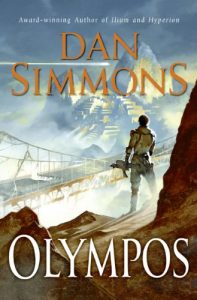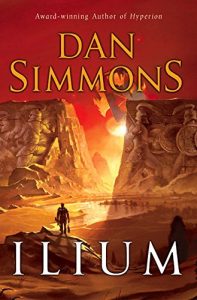After the relative disappointment of Olympos and what I’ve been told about others of his sequels, I was a little bit nervous about grabbing a new Dan Simmons book. But after glancing at The Terror closely enough to see it had no room for a sequel and liking the cover, I snagged it and sat on it for a while. When I finally started it, well, I’m pretty happy with these results.
The Terror refers to a couple of things. Primarily, the Terror was one of two ships on John Franklin’s expedition to discover the Arctic Northwest Passage, between Canada and the North Pole; as the book opens, these two ships have been trapped in solid ice for over a year, victims of unfortunate navigation choices and a failed summer thaw. The Terror also refers to a creature that is stalking the trapped men. It is massive, seemingly unstoppable and every bit as dangerous as the weather and dwindling supplies. Like I said, I was a little bit nervous about the book, and so I may have been more critical than usual. One scene near the middle of the book seemed a touch over the top, and I was a little bit antsy about the conclusion, but I got over it. On the whole, extremely solid book.
Additionally, it spoke to me pretty strongly, because I have myself experienced some fraction of a percent of what those men did, and as the prolonged cold started to take its real toll on them, I was pulled in more and more. But then, just at the end, real creepiness struck, above and beyond both scary monsters and punishing climates. Turns out, all this stuff really happened.[1] It’s one thing to be reading a book, watching people die one by one, wondering who of the characters might have a chance and who not. It’s quite another to learn that all of the results were set in stone before Simmons’ pen was ever set to paper, and to look at a picture of the last mission report, pulled out of a frozen cairn years after it was put there, their doom written in the margins of the only paper they could find.
I am not sure, but I think that may have made it better for me than it already was. I will, for certain sure, carry it with me longer.
[1] Not, y’know, all of it.
 Short Answer:
Short Answer:  The problems with having
The problems with having